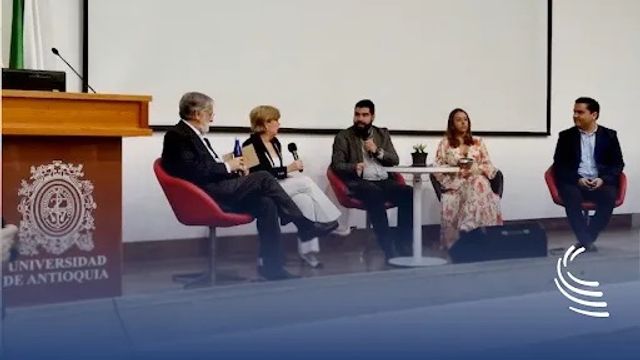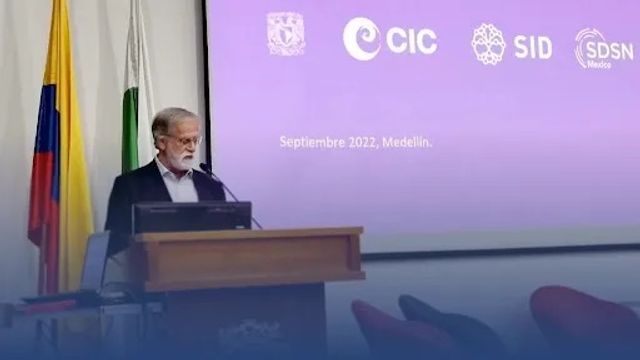SDSN Mexico’s Co-host, UNAM, and the University of Antioquia Strengthen Collaboration on the SDGs
At the last Intercultural and Global Citizenship Fair at the University of Antioquia, held on September 26, 2022, SDSN Mexico participated in various activities dedicated to the 2030 Agenda while emphasizing the important role universities and students have on the SDGs.
SDSN Mexico attended the conference on the "Global Challenges 2030 Agenda: What can academia do?", which was moderated by Network Co-Chair Dr. José Manuel Saniger Blesa. He explained that although this decade marks humanity's highest achievement in providing a good quality of life, there have been negative environmental and social impacts. Dr. Saniger Blesa highlighted that Latin American universities have almost 30 million students that "are an intellectual and strategic force that has shown to enjoy research and teaching, and it is through the sum of their strengths that they will meet the objectives of the 2030 Agenda creatively and promptly."
After the conference, a discussion with Mr. Edgar Leyva Diaz took place, highlighting the importance of using more effective communication tools to reach younger audiences because they are exposed to the media daily, and seek information through digital media and social networks. He also pointed out the need for internal networks in universities to commit to the 2030 Agenda by developing and cementing solutions that respond to the great global challenges of our time.
The network also participated in the discussion "Science Diplomacy and the 2030 Agenda" with Dr. Jose Manuel Saniger, Dr. Yudy Tibaduiza, and Daniel Arteaga. In this session, the speakers discussed how the solutions to global problems are within everyone's reach, and how science diplomacy can contribute to international cooperation through well-defined strategies conducive to the intersection of science and politics. The 2030 Agenda and the 17 SDGs address global problems that require contributions of all sectors– academic, political, governmental, and civil society.
Within UNAM itself, the experience of the university’s Chair of Diplomacy and Science Heritage is nascent, because Mexico has not paid close attention to science diplomacy in the past, despite its important role in generating multiple strategies to address different challenges via the SDGs. The Chair acknowledged the important role of researchers and highlighted that the problems they must address through research should be based on how communities live. One recommendation was to take a step beyond simply researching and begin to propose solutions and ideas that contribute to society-at-large. Given the issues of obtaining funding, the network also stressed that researchers must greatly adjust and limit the scope of their projects
As a result of this event, UNAM and the University of Antioquia agreed on various forms of collaboration including an exchange of lessons learned in social innovation practices, academic extension work in communities, and educational opportunities for young people to get involved in high-impact sustainability projects. These exemplify the development of a strategic partnership between both universities in order to accelerate progress on the 2030 Agenda.
To learn more about this partnership and SDSN Mexico more broadly, please visit the network’s website.

